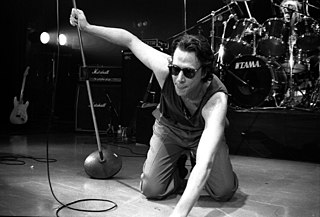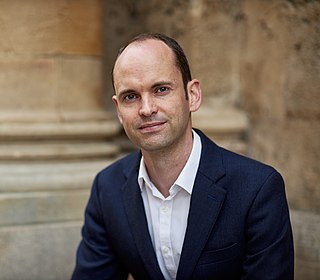A Quote by David Foster Wallace
One of the things that makes Wittgenstein a real artist to me is that he realized that no conclusion could be more horrible than solipsism.
Related Quotes
I remember the revelation it was to me when I realized I'd rather be smart in the way Elvis Presley was than in the way, say, Ludwig Wittgenstein was. The thing was, you could imagine you could be smart like Wittgenstein by just thinking hard enough, but Elvis just had it. It was almost spiritual. A kind of grace.
When the artist is truly the servant of the work, the work is better than the artist; Shakespeare knew how to listen to his work, and so he often wrote better than he could write; Bach composed more deeply, more truly than he knew, Rembrandt's brush put more of the human spirit on canvas than Rembrandt could comprehend. When the work takes over, then the artist is enabled to get out of the way, not to interfere. When the work takes over, then the artist listens.
I was always telling myself I could handle a more complex role, I could handle something bigger and more interesting than the work I was doing. But I wasn't demanding that of myself. At a certain point, I realized it was never going to come my way unless I started taking more control of it. That's what I realized I had to do.
When I examine myself and my methods of thought, I come to the conclusion that the gift of fantasy has meant more to me than my talent for absorbing positive knowledge. (Reading this makes me wonder how much sooner man could have walked on the moon... had we listened to a child's fantasies. It is truly a pity that so many lose their gift of imagination to the steady hum of the status quo.)
'Celebrity' is sort of an idea. I mean, I get to do something extraordinary, but I don't think it makes me extraordinary. That's my opinion. I like to be an artist; I like to do things that are involved in the arts, but I don't think it makes me more special than a doctor, for example. A doctor is an extraordinary person.
"Celebrity" is sort of an idea. I mean, I get to do something extraordinary, but I don't think it makes me extraordinary. That's my opinion. I like to be an artist, I like to do things that are involved in the arts, but I don't think it makes me more special than a doctor, for example. A doctor is an extraordinary person. Doctors should be celebrities. We just entertain people. They save lives.
The thing I think I have learned from Wittgenstein is the importance of not making things up: philosophers should not invent problems, and they should also be conscious of the risk of inventing pointless 'technical' machinery which do not offer real explanations, but often just re-state the known facts in a more complex way.





































